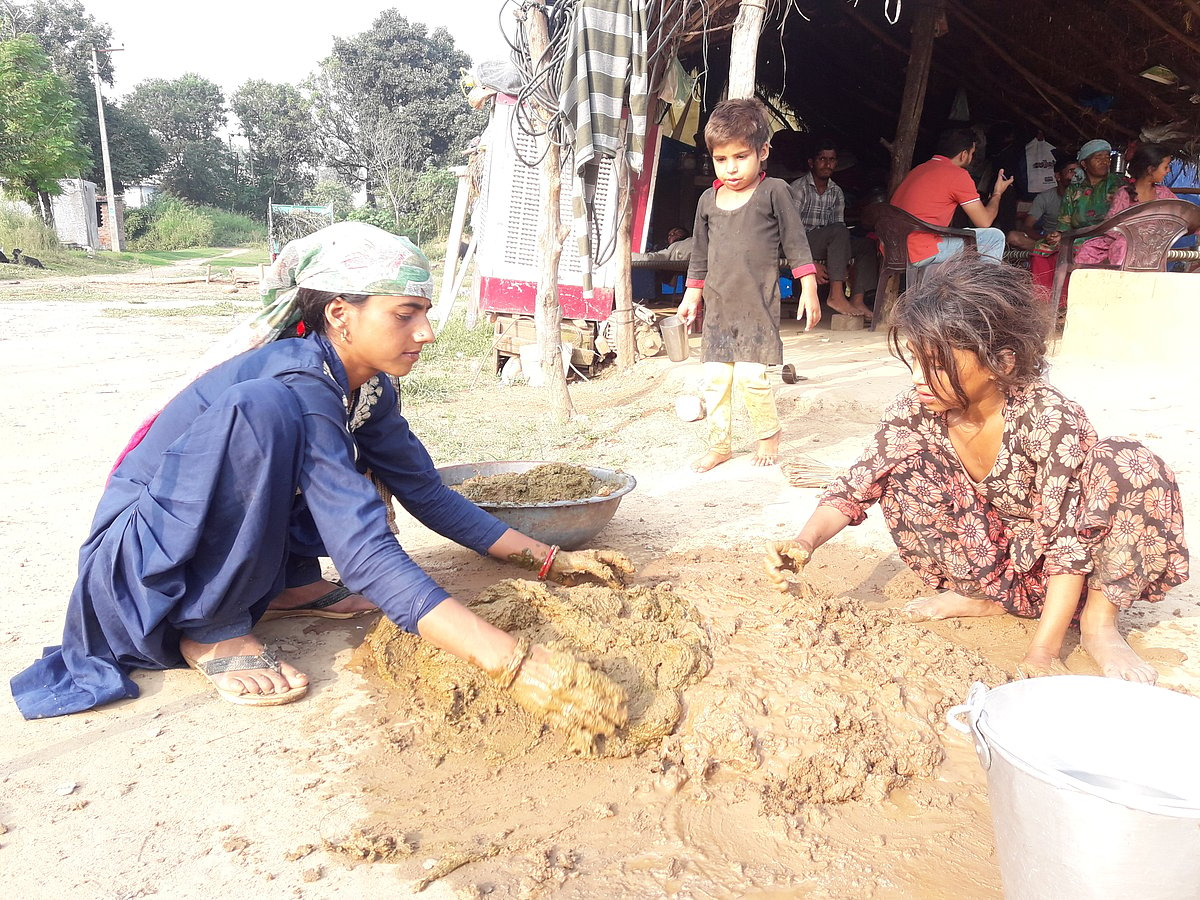‘Never seen a theatre in life’: The forbidden world of ‘urban’ Kashmiri tribal women
Many tribal families have been abandoning traditional pastoral nomadic lifestyle. While media’s portrayal of tribal women seems far from the truth, their life has become more taxing over the years

Kashmiri nomadic tribal women are mostly shown by the media as representatives of vibrant ethnic culture of the Himalayan state. Women wearing colourful skull caps and clothes with kohl make-up on eyes and eyebrows, henna dyed hands and silver jewellery make for excellent pictures.
But on the hinge side, the daily grind of tribal women, struggling with the onslaught of modernity, belies their media image and tells an altogether different story.
Many families of the twin nomadic pastoral tribes, Gujjars and Bakerwals, have started giving up traditional migration between Kashmir and Jammu over the years. The growing urbanisation and vehicular traffic on roads have thrown up several new challenges, making it difficult for them to undertake seasonal migrations along with their livestock.
Additionally, while the forests have now largely been fenced out in Jammu and Kashmir, the state doesn’t have forest rights act. In the recent years, the incidents of conflict between local residents and tribals over usage of the State land have also gone up.
A cluster of nomadic families camping on the bank of a seasonal river at Gadigarh near winter capital city Jammu depicts their daily struggle for survival in the “modern world”.
While livestock remains their mainstay, they feel socially excluded and deprived of the fruits of development, basic amenities and services, that towns and cities normally promise.
Instead of migrating to the upper reaches of the Valley, these families stay put at Gadigarh during summer. Before the onset of rainy season, they shift to RS Pura and camp on a rented piece of land for few months. All that they have for shelter are makeshift tarpaulin tents and mud huts.
Jatti (57) wakes up every day well before the first morning azan, . She quickly finishes all the household chores. Thereafter, she along with her son Mushtaq (25), leaves to graze cattle. They return after the sunset. It has been her daily routine for the past several years.
Jatti also collects firewood while keeping an eye on the cattle. The Pradhan Mantri Ujjwala Yojana hasn’t benefited her. Women like her continue to cook food on earthen chulha.

She was born near Krimchi in Udhampur when her family was on way to Kashmir to escape sweltering summer in the Jammu region. Jatti was married off by her parents when she was in her early teens. She doesn’t even remember the year of her marriage.
Talking about her daily routine, she says, “Early morning, women have to milk cattle, remove dung, make food, clean utensils, fetch water, herd the livestock, arrange water for them, collect fodder and stock the same. Then we have to look after the children as well and clean the house.”
“The men folk sell milk in the morning and then proceed to do menial jobs during the day to earn something extra,” she adds.
Women here don’t have any means of recreation. Jatti says its unthinkable for the women of her community to watch a movie in a theatre. She doesn’t have a TV set.
“My mother in law never visited any market. Her clothes were bought by her husband. I have visited RS Pura and Jammu markets but only for selling milk or to bring essentials and feed for animals,” she says.
Another woman at the camp, Parveena (21), got married at 14. Today, she is mother of three children. In her eight years of married life, she doesn’t remember when she took off from the routine work. “I watch Punjabi songs on my husband’s smart phone occasionally if I get some free time. That is the only source of entertainment for me.”
“Even my husband has never been to a movie theatre,” she says, adding that the family is always occupied with arranging fodder for the livestock.
Since they can’t afford to hire a vehicle, she says, they use horse carts for transporting fodder and milk.

A visit to their camp at Gadigarh near Jammu during winters, one would invariably come across women removing dung and drying dung cakes, used as fuel for cooking, and chopping fodder for the animals.
“Even those in government jobs are finding it hard to run their families of four members. You can well imagine our situation. Large families need more money, which means more work. Leisure is a luxury”, said Shelo Bibi (50) a widow.
She has seven sons and five daughters. Two among them have mental disabilities.
She said it becomes difficult for all the family members to attend a marriage function. On such occasions, women folk usually look after the tents and livestock.
Executive Editor of The Kashmir Times, Anuradha Bhasin, who has worked extensively on the nomads, says, “The daily schedule of the tribal people is so demanding that they don’t get time even to take their ailing family members to a doctor. They visit hospitals only when they are camping near roadside.”
“Leisure and recreation are a luxury that the tribal women can’t afford in their embattled lives,” she remarks, elaborating how such communities are getting disempowered under the current economic development model.

(The author is a Jammu-based journalist and media fellow with National Foundation for India)
Follow us on: Facebook, Twitter, Google News, Instagram
Join our official telegram channel (@nationalherald) and stay updated with the latest headlines
